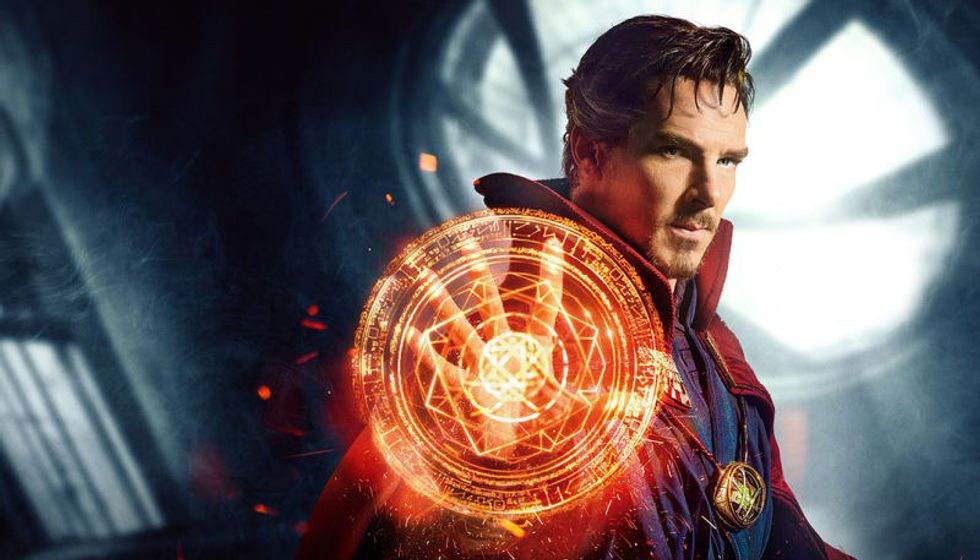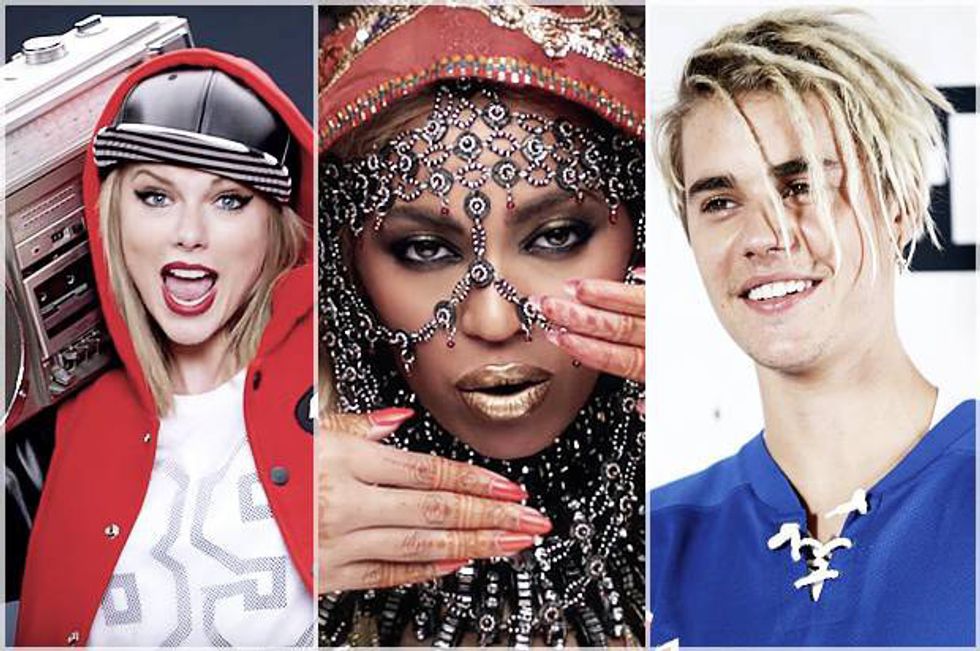Cultural appropriation is rough concept for many people to wrap their heads around, myself included. Unfortunately, the whirlwind of outrage culture and social justice warriors that are ever present on the internet often do nothing to help clarify these problems, but simply attack those branded as offenders. Because of this, many arguments against true cultural appropriation go unheard and are dismissed as being nothing more than emotionally compromised positions. I’m not here to argue that cultural appropriation doesn’t exist, it absolutely does. However, pulling any actions that could possibly be perceived as the misuse of another person’s heritage under an umbrella term is also problematic.
Story time: It’s early October. I join some friends gathered around a small laptop while the newest trailer for Doctor Strange plays on the screen. Once it’s over, we start discussing the movie, all of us excited at each other’s ideas about what the film will be like. After a moment, one of my friends turns to me and says, “You know, I’m surprised you even want to see the movie, Alex.” I almost laughed and asked him why. He explained that since the film contains a lot of elements derived from Buddhist culture and the implementation of Buddhist practices, he thought I –as a practicing Buddhist—would be offended by it.
I paused for a minute and mulled it over. Was I supposed to be offended? I replayed the trailer over in my head, trying to discern any religious iconography that was used inappropriately. I tried to think of anything characters said that seemed out of place. I even thought about the fact that the film’s star subscribes to Buddhist teachings and practices, so surely he wouldn’t be involved in a project that treated Buddhism with any disrespect.
Ultimately, my response was that I’d have to wait and see the film before I could judge the content fairly. Defending a movie like that felt odd to me, and the more I thought about it, the more it seemed that the movie itself wouldn’t be the problem, but it’s impact on popular culture.
Superhero films permeate so many different aspects of our daily lives. Young kids dress up as Captain America for Halloween, people emulate actor’s workout routines to get a “superhero physique,” and there are even people that adopt certain practices into their lives because it echoes the actions of a character they feel a connection to. This isn’t restricted to superhero films, but it made me think about the influence a new superhero film like Doctor Strange could have on its audience. Would fans begin to pick up certain Buddhist symbols and practices because they were now “trendy?
I’ve seen it happen before in several areas. Different aspects of Buddhist culture became marketable and suddenly I see zen gardens adorning people’s desks, zen candles sold alongside zen health foods. All of these objects that supposedly will bring me “zen.” It feels odd to me that the word zen became a catchphrase and now meant “relaxation” for many people. When I look around at these things being sold in stores, very few of them touch on anything even remotely related to Zen Buddhism, which pushes for a level of spirituality that cannot be accessed by material possessions or through simple words.
Even beyond that, I remember walking into a small shop once and spotting a decorative Buddha statue atop a bookcase. The problem: the head had been removed. I found my eyes trailing back to that statue over and over and feeling a little sick by the time I left.
It may seem harmless, but when this occurs, it robs these cultural elements of their original meaning. The meaning of the word “zen” is lost on many people. Even those that have a cursory relationship to Buddhism may not completely understand the ramifications of desecrating a sacred object in the way that shop did.
Recently, seeing people dressed up as Native Americans or as Mexicans for Halloween seem to be some of the biggest offenders. Typically, these costumes are made up of different articles of clothing that serve to showcase several stereotypes of each culture. The problem is simpler than that though, it comes down to the fact that these cultures are not costumes. Another person’s heritage is not something that can be taken on or off. True religious practices and iconography cannot be dismissed at a moments’ notice. It’s one of the most blatant illustrations of power imbalance between races and cultures when different aspects of a minority culture can be used to “dress up” just because they are viewed as exotic, and then set aside so easily.
So, while we can look at those things and say without any deliberation that it’s wrong, another question remains. Where do we draw the line?
While I wouldn’t appreciate the mislabeling of different Buddhist practices and the misuse of religious iconography, I’m not against certain other behaviors. I’ve had friends inquire about meditation practices, or even see symbols that have roots in Buddhist culture that they feel a strong connection to. It seems a little murky as to where we cross over into territory that would offend.
Is it wrong if a white chef wants to cook Mexican cuisine? If not, does it become wrong when that chef becomes the ambassador of that dish to teach it to others? Does a non-believer wearing a crucifix necklace as a good-luck charm cross a line? I’ve heard arguments that hip-hop and rap music should be restricted to African-American culture, that a white person wearing a Kimono to a Japanese wedding should have offended the bride, and that even hairstyles can be considered misappropriation of a person’s heritage. To me, it seems to come down each time to intent.
Where do we draw the line between appropriation and what is merely another’s person’s interest and admiration for another’s culture? When I meet someone with interests in Buddhist culture, I don’t immediately become offended. It’s not something I immediately feel the need to defend because while it is a part of my identity, it’s not a hipster fashion statement that I don’t want others joining in with.
My hope is that while certain behaviors will continue to offend and should not be condoned, that we will slow down and take a moment every now and then to try and think about why someone would do these things. Instead of condemning a person’s actions, sit down and talk to them and try to understand. If anything, try to make each other more aware of the intent behind the actions. You may learn something about that person that you didn’t know before and they may walk away with a better understanding or appreciation for a culture that they didn’t have.
I'm not saying we don't need to look after our own cultures or look after “us”.
Just that we lose nothing by expanding our definition of "us".
What makes humans special is not our ability dominate those more vulnerable than ourselves
It's our willingness protect them and to empathize with others and I hope we’ll carry that forward when we think about the best way to go about protecting our heritage, our cultures, and most importantly: each other.








 Going to the cinema alone is good for your mental health, says science
Going to the cinema alone is good for your mental health, says science












 women in street dancing
Photo by
women in street dancing
Photo by  man and woman standing in front of louver door
Photo by
man and woman standing in front of louver door
Photo by  man in black t-shirt holding coca cola bottle
Photo by
man in black t-shirt holding coca cola bottle
Photo by  red and white coca cola signage
Photo by
red and white coca cola signage
Photo by  man holding luggage photo
Photo by
man holding luggage photo
Photo by  topless boy in blue denim jeans riding red bicycle during daytime
Photo by
topless boy in blue denim jeans riding red bicycle during daytime
Photo by  trust spelled with wooden letter blocks on a table
Photo by
trust spelled with wooden letter blocks on a table
Photo by  Everyone is Welcome signage
Photo by
Everyone is Welcome signage
Photo by  man with cap and background with red and pink wall l
Photo by
man with cap and background with red and pink wall l
Photo by  difficult roads lead to beautiful destinations desk decor
Photo by
difficult roads lead to beautiful destinations desk decor
Photo by  photography of woman pointing her finger near an man
Photo by
photography of woman pointing her finger near an man
Photo by  closeup photography of woman smiling
Photo by
closeup photography of woman smiling
Photo by  a man doing a trick on a skateboard
Photo by
a man doing a trick on a skateboard
Photo by  two men
two men  running man on bridge
Photo by
running man on bridge
Photo by  orange white and black bag
Photo by
orange white and black bag
Photo by  girl sitting on gray rocks
Photo by
girl sitting on gray rocks
Photo by  assorted-color painted wall with painting materials
Photo by
assorted-color painted wall with painting materials
Photo by  three women sitting on brown wooden bench
Photo by
three women sitting on brown wooden bench
Photo by 
 Photo by
Photo by  Photo by
Photo by  Photo by
Photo by  Photo by
Photo by 


 people sitting on chair in front of computer
people sitting on chair in front of computer











